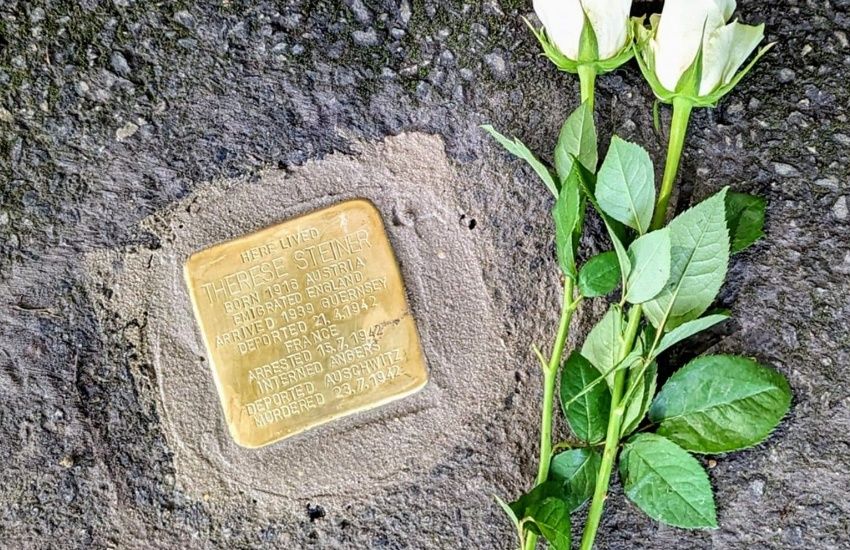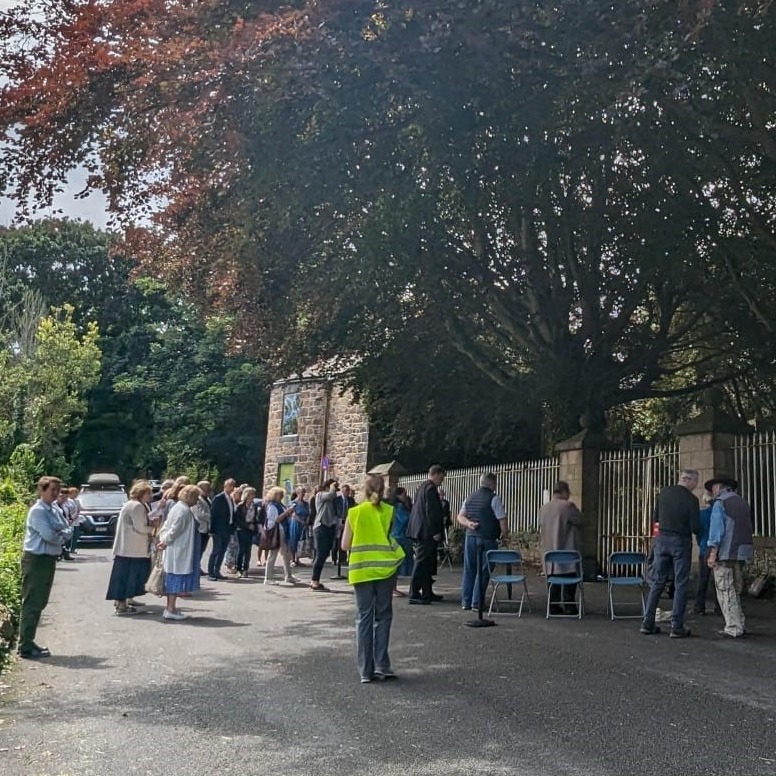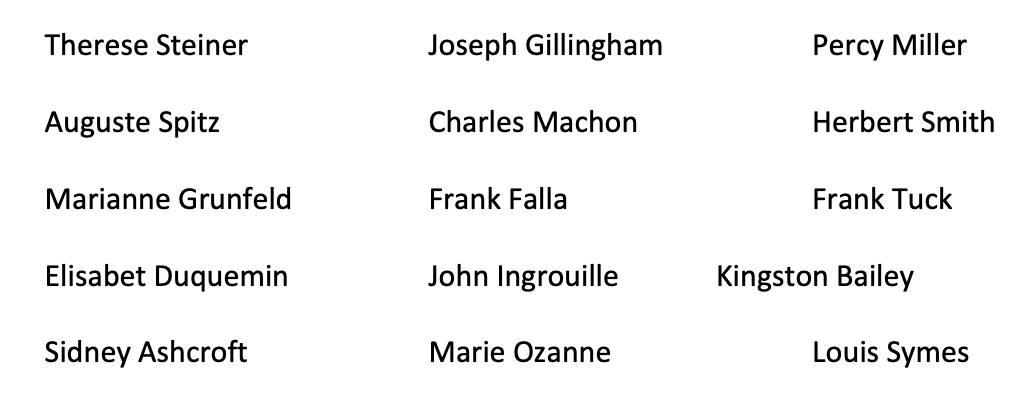


15 engraved brass cap stones have been installed around Guernsey to commemorate 15 people who were deported from the island during the Nazi Occupation, as part of a wider European memorial art initiative.
The stones have been inserted into the pavements outside their former homes to note how they were victims or survivors of Nazi persecution.
The Guernsey Eight, who died in Nazi prisons and camps, as well as the three Jewish women known to have been deported from Guernsey and murdered in Auschwitz, comprise the 11 people who were killed or who died because of their treatment in camps and prisons.
A further four stones remember those who survived, including Frank Falla who fought the deportees as a member of the underground radio network GUNS, Vienna-born Elisabet Duquemin; a Jewish woman who was later deported to Compiègne and Biberach internment camps, and Frank Tuck and Kingston Bailey; two of the policemen who were deported to camps but survived with life-altering injuries.
Family members were contacted in advance, and some travelled to witness the unveiling on Friday, with a special ceremony held at the Castel Hospital, followed by a lunch at Les Cotils on Saturday.
The project has been delivered by German artist Gunter Demnig in partnership with Guernsey Museums’ Helen Glencross and Dr Gilly Carr from Cambridge University, who is a holocaust remembrance representative for the Channel Islands.
20 stones, or Stolpersteine, have also been placed in Jersey with the help of Chris Addy from Jersey Heritage.

Pictured: Families gathered to view the installations, including two near the Castel Hospital commemorating the lives of Auguste Spitz and Therese Steiner.
Dr Carr said it was great news that “victims of Nazism here can be honoured as they are elsewhere on the continent.
“Stolpersteine are such an effective and moving form of memorial, placed outside the last address of those who were deported. I am proud to be involved in doing this for those who suffered so much during the Occupation.”
Helen Glencross, Head of Heritage Services, said it was an honour to be involved and made a call for anyone with information about three unknown families to come forward.
“Logistically it has been challenging and I am very grateful to all those who have assisted," she said.
"I hope that the Stolpersteine will raise awareness with islands and visitors about those who were victims and survivors of Nazism during the Second World War.
“It has not been possible to locate families of the three Jewish women killed in Auschwitz but if anyone has any contact with their family members then we would love to hear from you.”

Pictured: The list of names honoured with a Stolperstein - the stories of all of these people can be found HERE.
Several of the stones were laid by Mr Demnig himself, who since 1992 has led efforts to lay stones across Europe.
There are now more than 100,00 in several countries.
As he’s now past retirement age he no longer hand makes the memorials but makes every effort to lay them.
The UK received its first Stolperstein two years ago in memory of a Dutch woman of Jewish heritage; Ada van Dantzig, who was murdered in Auschwitz aged 25. It was laid in London at her former place of work.
Comments
Comments on this story express the views of the commentator only, not Bailiwick Publishing. We are unable to guarantee the accuracy of any of those comments.